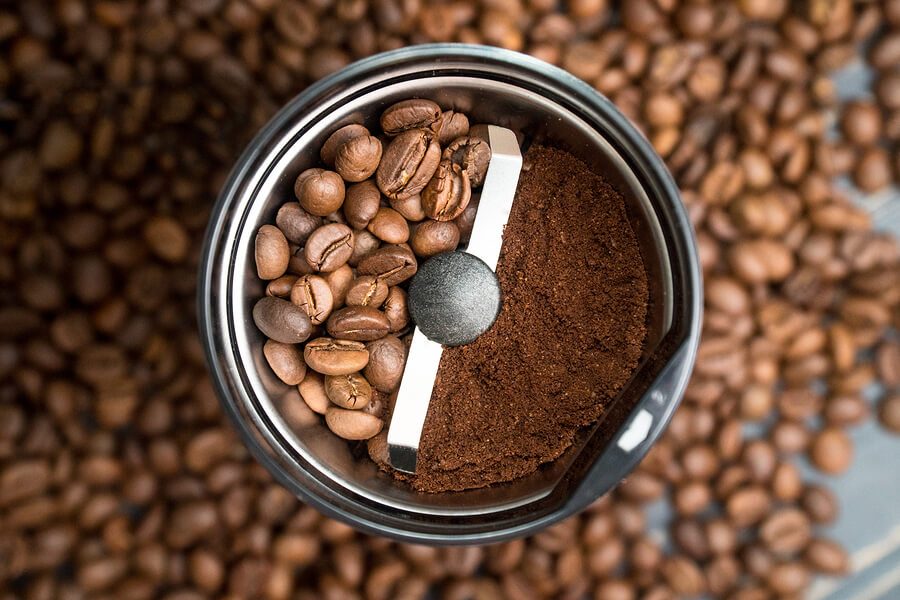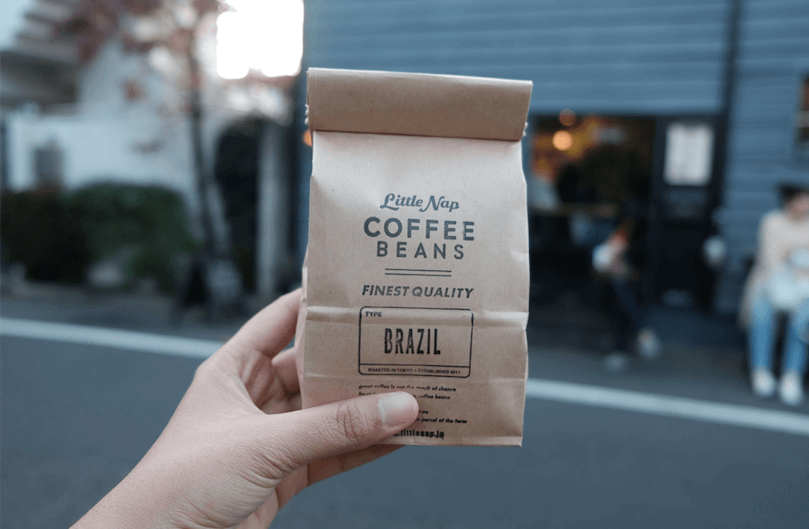If you care about your cup of java to topmost freshness and aroma, you just need to know how to store your coffee perfectly to keep it garden-fresh for as long as possible.
Shelling out 20 bucks for a haute bag of beans won’t be enough, there are many factors that contribute to a bitter and stale cup of java but the most common is improper storage.
Fresh coffee, stored correctly, will ensure a great-tasting cup of coffee – isn’t that something you’re actually looking for?
If you don’t know how to fix this problem, in this guide, I’ve covered the whole nine yards for preserving these little nuggets correctly to make sure you brew every cup full of freshness and flavor.
Let’s discuss this in detail…
What Affects the Coffee Freshness
The two primary things, light and oxygen that give us life, take it away from the coffee. You’ll have to adhere the principles that baristas around the world use to store their coffees and luckily, they are easy to apply in your home as well.
For maximum coffee freshness, you’ll have to:
- Decrease air movement
- Limit the temperature fluctuations
- Avoid its exposure to sunlight
Pre-Ground vs. Whole Beans
As we know freshly ground is better than pre-ground pepper, the same theory applies to coffee. The whole beans should be ground right before you brew. The oils that make your cup of coffee delish and full of aroma, begin to degrade in quality consequently.
This means, pre-ground coffee keeps on losing its natural flavor as it sits on the rack of the grocery for weeks, months or maybe even years, who knows. Moreover, you just can’t control the grind size for making different types of coffee specialties as someone else is doing it for you.
That’s why I’d recommend switching to the whole bean as it gives you proper control over the grind size and puts more flavor, aroma and energy to your cup with a clear taste’s difference that you won’t achieve with pre-ground coffee.

Should You Freeze/Refrigerate Your Coffee?
One of the stubborn myths is that storing your coffee in freezer prolongs freshness. This is untrue because:
- Most of the bags aren’t airtight so keeping them in freezer will do more harm than good.
- Coffee is perishable; putting it openly into the freezer will start absorbing its natural flavors and oils.
Same principle also applies to storing coffee in the refrigerator where moisture level will cause its piquancy to lose even more faster.
What about storing it in bean hopper?
Keeping the coffee in the bean hopper is also bad idea as most of them aren’t hermetically sealed. Besides, staling the coffee, its oil will build up inside the grinder.
You’ll still have to face the music if you love drinking different types of coffee; more than one kind of coffee will inevitably mix in the grinder, makes it harder to fine-tune contrasting grind sizes.
Myths aside, there are few simple things, you can do-and avoid-to ensure your coffee stay as fresh as possible.
Buy Fresh Coffee – Purchasing Tips
It all starts from buying, no matter, how well you store you coffee, you won’t see any flavor, aroma and energy in your cup of java, if your beans aren’t fresh enough.
Whether you’re buying at the grocery store or directly from a roaster, you must need to know what to look on a bag of coffee.
- Don’t buy whole beans out of large open barrels in your local grocery store, the ones have been exposed oxygen and UV rays, and contaminated from the hands of children.
- The roast date on bag of coffee shouldn’t be longer than two weeks. Older than this stage, the beans begin to lose its natural flavor and your brewed coffee will taste like cardboard. However, if you don’t see any date, just put those beans back to shelf.
- It’s all about transparency, a great roaster provides as much information about roasting locations and farms as possible. So, always make sure, your coffee should be roasted near to where you resides or are traveling. However, in case your coffee bag doesn’t give such details, chances are it’s probably not that much great.
When I say bag, it means I’m talking specifically about bag and not other type of coffee beans.

Remember, buy only as much coffee as you’ll drink in a week or two. Buying in bulk won’t be doing you any favor in storage and taste departments, instead its flavor and aroma will be negatively affected over time.
How Long Does it Last?
It depends on how it’s packed. Paper craft bag with a thin lining will not keep it fresh for long. You may enjoy it within a week, and afterwards, it’ll taste like feet.
On the bright side, if it comes in one-way valve foil bag with pinholes that permit the gas out but not let the air in, you can use for one week or two before it begins to taste flat.
Of course, shelf life of coffee is shorter but when you store it properly, it can even past its best before date approximately…
Coffee Expiration Period In a Non-Vacuum Bag (When Stored Properly)
|
(When unOpened/Sealed) |
||
|---|---|---|
| Coffee Type |
Pantry |
Freezer |
| Ground Coffee |
3-5 Months |
1-2 Years |
| Whole Beans |
6-9 Months |
2-3 Years |
| Instant Coffee |
2-20 Years |
Indefinite |
|
(When Opened/unSealed) |
||
|---|---|---|
| Coffee Type |
Pantry |
Freezer |
| Ground Coffee |
3-5 Months |
3-5 Months |
| Whole Beans |
6 Months |
2 Years |
| Instant Coffee |
2-20 Years |
Indefinite |
Best Practices to Store Coffee and Keep it Fresh
No matter if its whole beans or ground coffee, you can follow these short and long-term methods to keep your coffee crisp and firm:
1. Control The Temperature
In most cases, the places where you store your coffee won’t be optimal. For instance, hoarding your coffee in cabinets near the stovetop will make it too warm and leaving it on countertop will dilute its flavor due to exposure to sunlight streaming through your windows.
2. Use Retailer’s Coffee Bag
You can keep the coffee on the countertop, in the cupboard, out of direct sunlight if sealed in the coffee bag, they came in.
Make sure you reseal it tightly after every serving. The best practice is to use a clipper, push as much air out of the bag as you can and shut its opening.
3. Airtight and Lightproof Containers
Containers like mason jars, repurposed bottles or plastic bags are easy to come by. Most of them don’t permit air to get to your coffee. You can use any one of them but make sure you put it at the place that’s all the time away from sunlight, viz. in a cupboard or a pantry.
Contrarily, you can use a container that’s airtight as well as lightproof. In particular, a coffee canister is good enough to keep the oxygen out and prevent the coffee from staling due to light exposure.
4. Use the Freezer for Long-Term Storage Only
Speaking about freshness, storing the coffee openly in a freezer makes it age faster and greatly affects its taste. But when you’re on the dead-set or bought the coffee in a large quantity, it’s good to stock up on several smaller bags and freeze the ones that you won’t use in a week or two.
Just make sure each bag is sealed with a thick plastic or other airtight container. This ensures that coffee will have minimal exposure to oxygen.
You can keep those sealed bags in a deep freezer vs refrigerator to keep it at constant temperature and humidity conditions.
Remember, as you take the coffee out of the freezer, brew it immediately; don’t put it back to the freezer again, otherwise, it will cause the loss of flavor due to the repeated change in temperature.
Don’t Throw Out Stale Beans
You bought freshly-roasted coffee that you’d finish before it begins to lose its flavor but that’s not the case so often – you realize, your coffee has been staled. Don’t throw it out – you can still use it to brew a specialty coffee drink: Cold Brew.
Using the fresh coffee would be just a kind of waste for this drink. You can use your old enough coffee and it will taste just as good as you’d expect.
Final Thoughts
If you build your coffee storing habits around those principles, your coffee will retain its maximum freshness and qualities for months and even years before you start seeing a decline in taste.
It’s not difficult to manage, just throw your beans in an airtight opaque container and keep it in a cool and dry place, away from the moisture. Easy peasy!
Don’t forget, excellent coffee storage works only when you start with freshly-roasted coffee.
Happy Brewing!
You may also be interested in:
This is some really good information about store coffee. It is good to know that it would be smart to keep it in an airtight container. That is good for me to know because I want to get some really nice coffee soon. It would be nice if the coffee taste stayed good for a long time.
Is it ok to store ground coffee in the pantry in the can it came in? Is air tight enough?